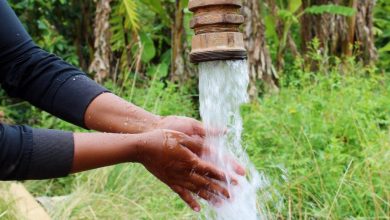Green gold rush needs youths on the frontlines

DAR ES SALAAM: AS the world marks World Environment Day 2025 today under the theme “Ending Plastic Pollution,” led by the Republic of Korea, it is high time we (Tanzanians) cut the fluff and got our hands literally dirty.
We must forget the grand speeches and glossy reports.
What we need is real action from the ground up. That means rolling up sleeves for genuine activities like tree planting, clean-up drives and community education on waste management.
Yes, it sounds old-school. But ask anyone who has hauled a bag of trash out of a river or planted a seedling where a forest once stood, purely it works! In Tanzania, the environment is not just about clean air or picturesque landscapes.
It is about survival, livelihoods and now, surprisingly, economic opportunity. Enter carbon trading that is the latest buzzword in climate finance that is more than just jargon.
It is a potential goldmine. But this time, it’s green. In May this year, Tanzania inked a deal with Japan to expand its carbon trading market, making international headlines and local possibilities.
That was not just paper-shuffling diplomacy; it laid the foundation for a green economy boom.
And to make that happen, the youth need to be in the driver’s seat and not as passengers waiting for opportunities, but as navigators creating them.
With the revised Environmental Management Act of 2025, Tanzania has already established a National Carbon Monitoring Centre.
This is not just bureaucracy, it is a brainchild that can track and measure carbon credits, a vital link in the global carbon trading chain.
ALSO READ: World Environment Day: How GGML mining activities protect environment
Now, imagine young Tanzanians trained in carbon measurement, verification, sustainable land use and modern recycling technologies.
That is not just a vision, it is a game plan. But we need more than government blueprints.
Local authorities must link arms with different stakeholders (be they local or foreign) to ignite grassroots action. Picture this: A young man in Mwanza helping to manage a reforestation project, a young woman in Dodoma leading a team in community waste recycling, all trained, empowered and earning from carbon credits.
That is not sci-fi; that is next month if we get this right.
Plastic pollution, this year is global theme, is not just a nuisance, but it is a symptom. A symptom of economies hooked on linear consumption, where use and throw is the default.
Recycling tech and circular economy models are not just environmental saviours-they are job creators.
And with a pinch of Tanzanian ingenuity (and maybe a bit of cheeky humour), we could turn plastic waste into products, profits and purpose.
Of course, we can’t ignore the occasional bureaucratic stumble, the infamous “project still in planning” syndrome, or the endless workshops with questionable snacks and minimal outcomes.
But let us not let the perfect become the enemy of the doable. In this World Environment Day, let us keep it simple: less talk, more tree planting.
Fewer slogans, more sorting bins. And yes, fewer PowerPoint slides, more youth-led project sites. Climate change is no joke, but tackling it doesn’t have to be doom and gloom.
Let us make sustainability smart, youthful and, dare we say, a bit coo





